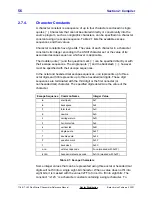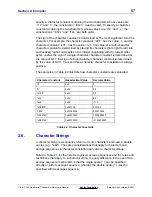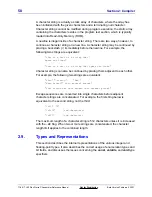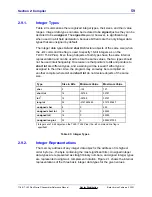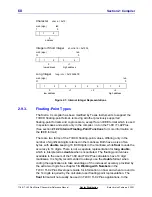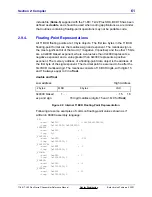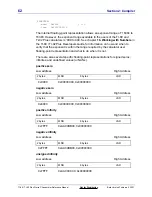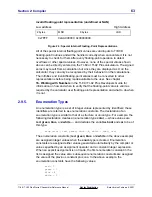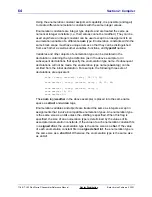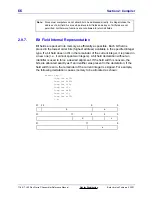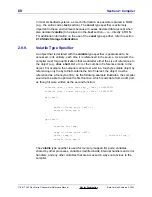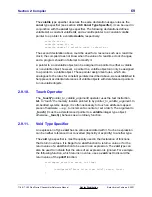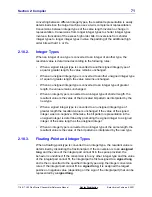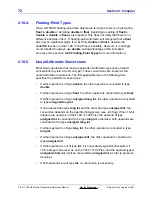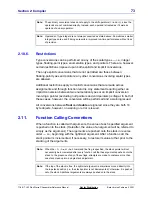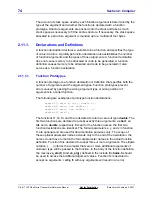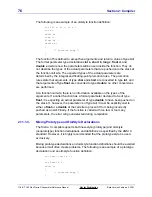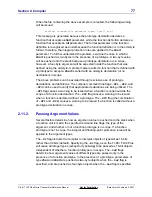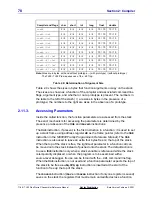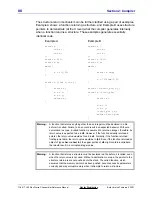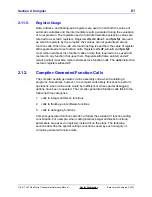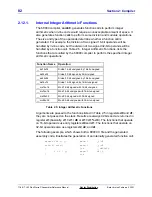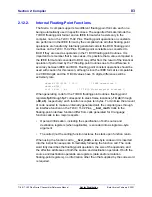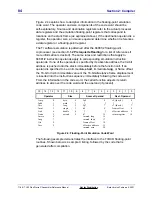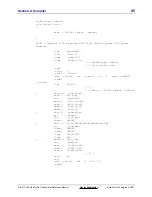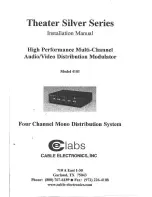
70
Section 2: Compiler
TI
-
89 / TI
-
92 Plus Sierra C Assembler Reference Manual
Not for Distribution
Beta Version February 2, 2001
The void cast is not necessary in the above example, but many programmers
use the cast to indicate that the return value is being intentionally ignored.
2.9.12.
Void Pointer (void *)
A pointer to void (i.e., void *), referred to as a generic pointer, has special
meaning to the compiler. A pointer to any type of object can be converted to a
void pointer and back again with the resultant and original pointers guaranteed
to compare equal. Additionally, void pointers and non-void pointers may appear
together in assignment and comparison expressions with no explicit type
conversion. The following examples demonstrate legal and illegal pointer
expressions:
int *pi;
char *pc;
void *pv;
pv = pc;
/* legal
*/
pc = pi;
/* illegal, cast required
*/
pi++;
/* legal
*/
pv += 2;
/* illegal, size of void pointer unknown
*/
f( *pv )
/* illegal to dereference a void pointer
*/
2.10. Conversions
The compiler provides for both the implicit and explicit conversion of values from
one type to another.
•
A value may be explicitly converted to another type with a cast operator.
•
An operand may be implicitly converted to another type so that a specific
arithmetic or logical operation can be performed.
•
An implicit conversion may result from the assignment of an object of one
type to an object of another type.
•
An argument to a function may be implicitly converted to another type in
preparation for the function call.
•
The value returned by a function may be implicitly converted to the function
return type before the function return.
2.10.1. General
Considerations
When a value of one type is converted to a value of another type, the internal
representation (i.e., bit pattern) may change. Conversions between floating-point
types and integer types always involve a change in representation. When

